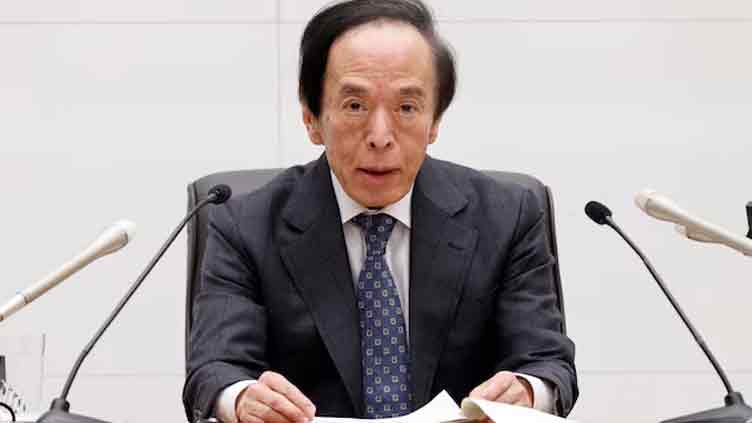BOJ chief vows to scrutinise US tariff impact in setting policy

Business
'We will continue to carefully analyse how the tariffs could affect Japan's economy'
TOKYO (Reuters) - Bank of Japan Governor Kazuo Ueda said on Wednesday the central bank will carefully analyse how U.S. tariffs could affect the economy in making monetary policy decisions.
"Domestic and overseas economic uncertainties have heightened due to U.S. auto and reciprocal tariffs," Ueda told parliament.
"We will continue to carefully analyse how the tariffs could affect Japan's economy and prices through various channels."
Advertisement · Scroll to continue
The BOJ exited a radical stimulus programme last year and raised interest rates to 0.5% in January on the view Japan was on the cusp of sustainably achieving its 2% inflation target.
Trump's decision to impose sweeping tariffs worldwide, including on Japan, has complicated the BOJ's plan to continue raising interest rates from still-low levels.
Ueda said the BOJ's past decisions to raise interest rates were made with a focus on underlying inflation, which has gradually accelerated toward 2%.
The decisions were also based on the view that removing excessive monetary support now will help the BOJ avoid raising rates sharply later to combat a too-high inflation rate, and ensure Japan's economy achieves sustainable growth, he added.
When asked by a lawmaker to deliver stronger language committing to combat economic headwind from Trump's tariffs, Ueda said only that there was still uncertainty about how U.S. trade policy will unfold.
"We will scrutinise developments, analyse how they affect the economy, prices and markets to come up with solid projections, and guide policy appropriately," Ueda said.
The BOJ next meets for a policy meeting on April 30-May 1, when the board is seen keeping interest rates steady at 0.5% and issuing fresh quarterly economic forecasts.


